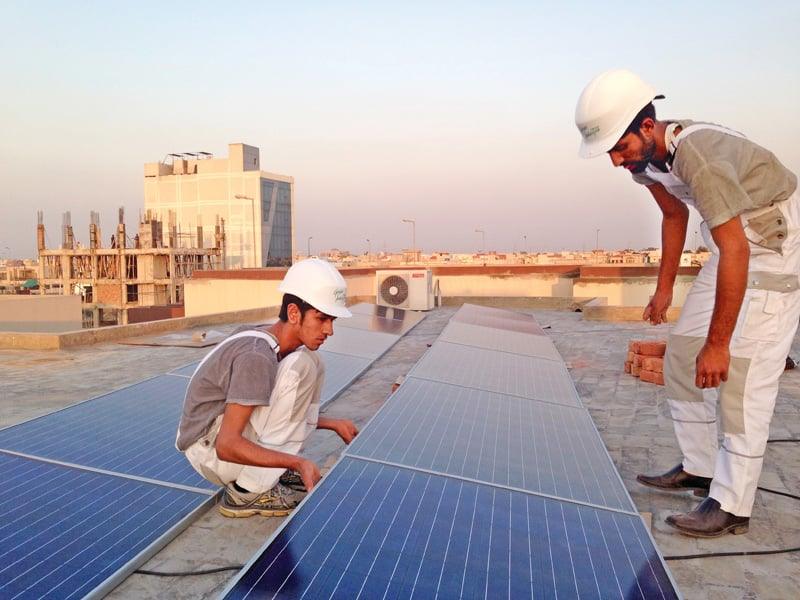The Pakistani government has successfully transitioned 100 federal schools to solar energy, marking a significant step towards sustainable energy in the education sector.
The Federal Directorate of Education (FDE) has completed the solarization project in collaboration with the National Radio and Telecommunications Corporation, Express News reported.
The initiative includes battery backup systems to ensure uninterrupted power supply.
Federal Secretary Education Mohiuddin Wani termed the achievement a reflection of the government’s commitment to efficiency, sustainability and innovation.
He said installing solar panels would not only reduce carbon emissions but also provide schools with a reliable and environmentally friendly source of energy.
Mohiuddin Wani added that while this year’s project covered 100 schools, plans were in place to switch other federal educational institutions to solar power in the next financial year.
Last week, Punjab Chief Minister Maryam Nawaz took several important decisions aimed at transforming the agriculture, solar and industrial sectors in Punjab.
By February 28, 2,000 more superseders will be provided to farmers at discounted rates, in addition to the 10,000 tractors already allocated.
In line with her plan to expand the free solar power initiative, the Chief Minister decided to accelerate and expand the scheme, with a focus on providing free solar power to citizens across the country. Punjab. A major decision was also made to switch government buildings to solar energy and complete renewable energy projects by June.
To further promote solar energy, an additional fund of Rs 6 billion will be allocated. Additionally, the process of creating a fund to generate electricity from waste will be completed by March. A review of the solar energy transition program for various government institutions, including the Punjab Assembly and the Institute of Cardiology, will also take place.
The chief minister also set a deadline to complete the ‘Garments Cities’ project in Punjab by March and ordered the preparation of a feasibility study for setting up a 300-acre industrial and technology park in Narowal and a technological university in Kasur.
To advance modern farming methods, the government will set up a monitoring system in each division to create awareness among farmers about modern techniques. The creation of an inspector’s office responsible for monitoring agriculture and accelerating recruitment was also approved.
Under the Green Tractor Scheme, more than 4,500 tractors have already been distributed to farmers and superseders have been provided in several areas including Faisalabad, Gujranwala, Sargodha and Lahore. Additionally, solar systems were provided to 404 poor families in villages without electricity.
Senior officials including Nabeel Ahmad Awan, Asif Tufail and other secretaries attended the meeting and presented updates on various ongoing and new projects under the Annual Development Program (ADP).
The meeting highlighted the government’s commitment to creating an agricultural and industrial revolution in Punjab, with Maryam Nawaz at the forefront of these transformative initiatives.




